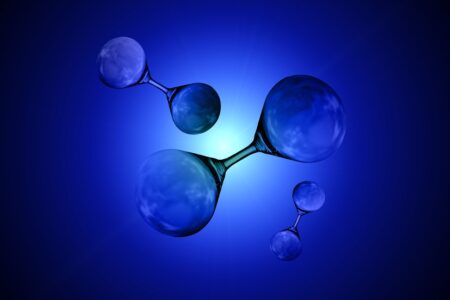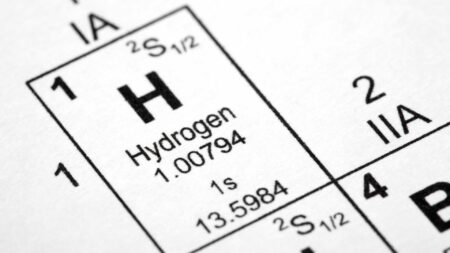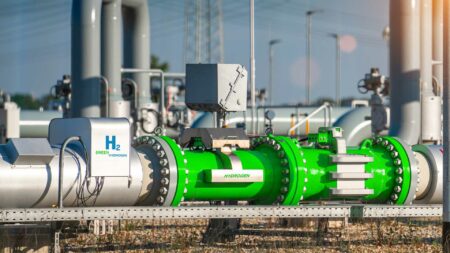An optical sensor that can detect extremely low hydrogen concentrations has been created by scientists from Chalmers University of Technology, Vrije Universiteit Amsterdam, and Eindhoven University of Technology.
In order to decarbonize the heavy transportation industry, hydrogen is viewed as a key component, and hydrogen-powered trains, trucks, and aircraft are being developed and used globally. Hydrogen is recognized as being crucial in even heavy industry, such as in the manufacture of steel free of fossil fuels.
Hydrogen storage and use carry a number of known dangers. For an explosive mixture (knallgas) to form in air with only 4% hydrogen, a spark of any size is all that is needed. Ultra-sensitive sensors must be installed in order to monitor leakage and sound an alarm at critical levels.
The Department of Physics at Chalmers University of Technology in Sweden has now created an optical hydrogen sensor that can detect hydrogen concentrations as low as ever before in collaboration with Dutch colleagues. Thus, it joins the group of sensors with the highest sensitivity.
AI technology set the standard
The optical hydrogen sensor is made up of many metal nanoparticles that cooperate to find hydrogen in their immediate environment. The new sensor was created using a different methodology than earlier ones. The researchers have employed cutting-edge AI technology to generate the ideal interaction between the particles based on their proximity to each other, diameter, and thickness, as opposed to manufacturing a large number of samples and testing them one at a time to determine which one works best. As a result, a sensor was created that can track changes in hydrogen concentration down to a few hundred thousandths of a percent.
The combination of the particles’ precise size and their regular arrangement on a surface is the secret to the new sensor’s low detection limit. Compared to the random particle arrangement employed in earlier sensors of the same type, this turned out to be more advantageous for the sensor’s sensitivity.
Optical hydrogen sensor
The sensor that the researchers created is based on plasmons, an optical phenomena that happens when metal nanoparticles catch light and give the particles a distinctive color. When the amount of hydrogen in the environment varies, the color of the nanoparticles composed of palladium or a palladium alloy changes, and the sensor can sound an alarm if the levels reach critical levels.
In order to attain the highest level of sensitivity to hydrogen exposure, the researchers employed an artificial intelligence method called particle swarm optimisation to determine the ideal combination of the arrangement on the surface and shape of the particles in the sensor. The solution turned out to be to arrange the particles in a very well specified regular pattern.
The AI-designed optimized optical hydrogen sensor was made, and its ability to optically detect hydrogen in the “parts per billion” range has been confirmed (250 ppb).








